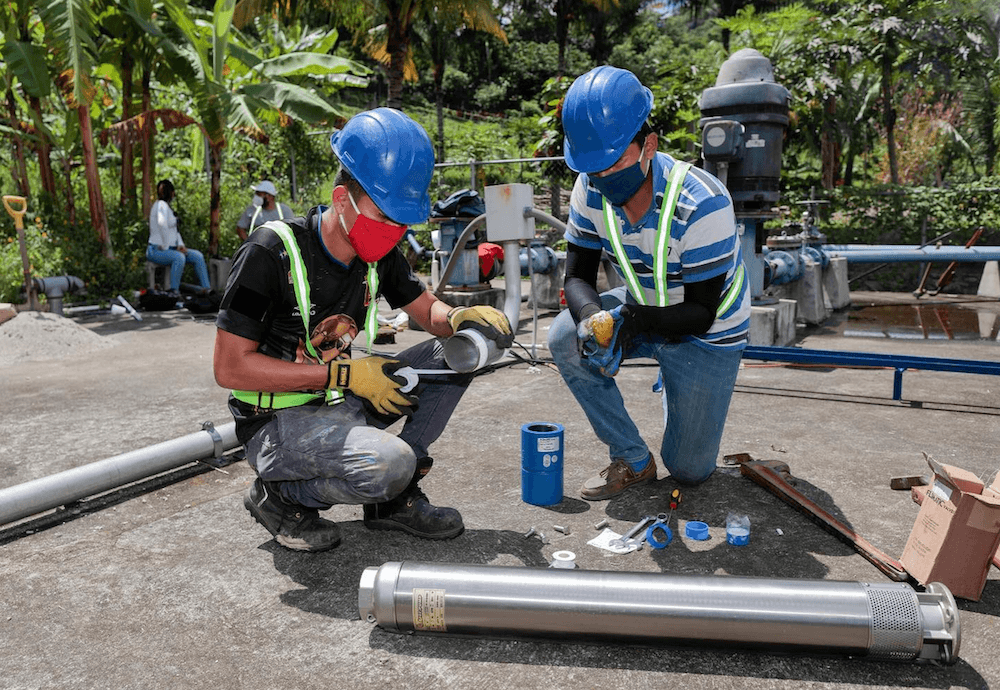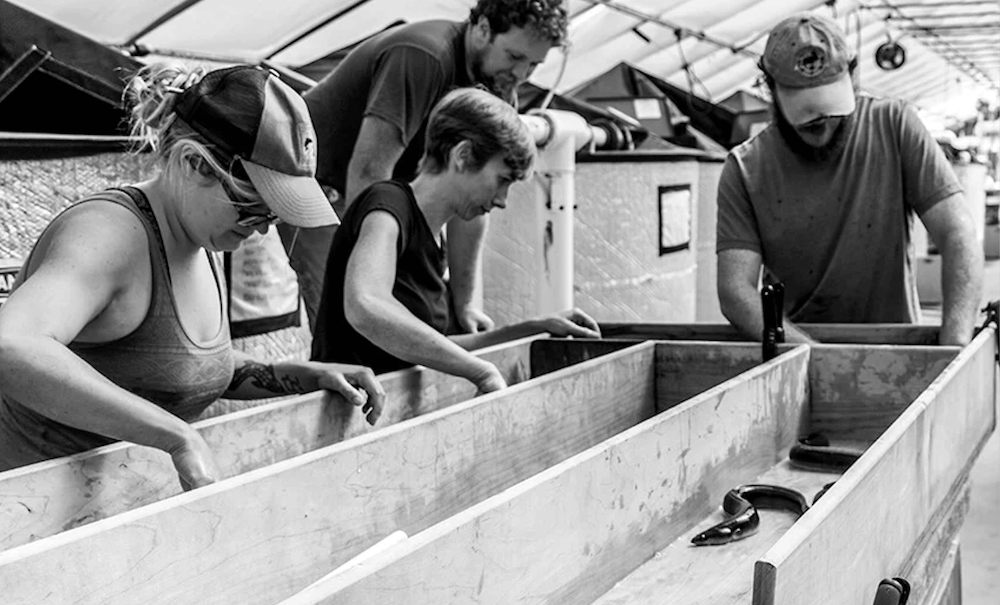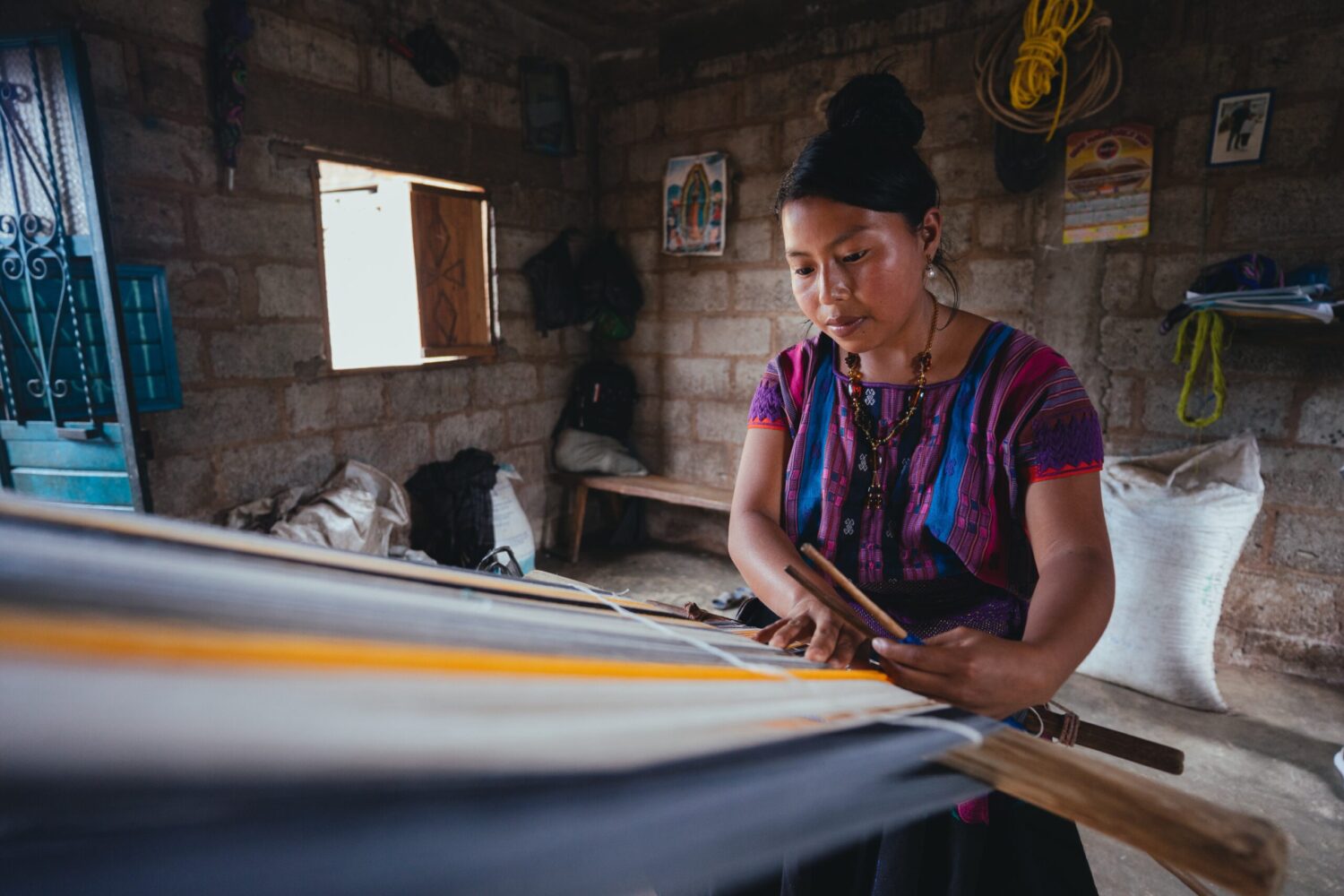ImpactAlpha, January 9 – A burst of impact fund closings at the end of 2023 may be a positive sign for fundraising at the end of a difficult year. It remains to be seen whether the rebound will reach managers beyond the mega climate and impact funds of legacy private equity giants and infrastructure firms.
This month’s Liist of impact funds that are currently raising capital features smaller and scrappier fund managers hustling to bring capital to underfinanced opportunities in emerging markets. While some managers pursue innovative structures, others are repurposing standard vehicles for social and environmental impact. Think VC funds for climate tech, or private equity to boost livelihoods for women and youth in Africa.
That’s an innovation in itself: Impact vehicles in Africa took in just 2% of impact capital last year, and in Asia, just 10%, according to Pitchbook; three of every four people on the planet live in the two regions. What we’re watching for: institutional interest in emerging market, female and first-time fund managers.
On this month’s Liist:
- Brightmore Capital, a first-time, woman-led firm in Senegal investing in small businesses in francophone West Africa
- Dangerous Ventures, a Santa Fe-based fund for hardware and product-based climate ventures
- EchoVC’s first fund to seed Africa’s homegrown climate tech entrepreneurs
- Satgana’s climate tech venture fund for Africa and Europe
- Spring Impact Capital’s first fund for seed-stage social enterprises in Canada
- Total Impact Capital’s Impact Notes facility to provide affordable debt to organizations supporting clean energy adoption, local livelihoods and health access, and its Azure Source Capital for water service providers in Central America
Disclaimer: The Liist and this post are based on available information, sourced by ImpactAlpha. Information has not been further reviewed by the managers nor verified by third parties, is not guaranteed for accuracy or completeness, and should not be relied upon as investment advice or recommendations. Nothing in The Liist, this post or on ImpactAlpha.com shall constitute an offer to sell or the solicitation of an offer to buy securities.
Brightmore Capital
Small businesses contribute as much as 50% of GDP in African economies. Brightmore Capital provides equity, mezzanine debt and revenue-based financing to underfunded businesses in francophone West Africa as a way of boosting local economies and livelihoods for women and youth. It is focusing in particular on businesses in food, financial services and other essential services.
The Dakar-based firm is raising €30 million for its first fund to cut checks of €500,000 to €2.5 million to profitable, owner-operated businesses that have been in operation for at least three years.
Pilot fund
Brightmore’s managing partners secured early capital for a pilot fund from Mastercard Foundation and a local institutional investor in Senegal. Its portfolio includes Ecozen, a women-led business that upcycles car tires for construction and textile materials.
Reach out for more information.
Dangerous Ventures
Santa Fe-based Dangerous Ventures has an ominous-sounding name to underscore what’s at stake if investors don’t take the climate crisis seriously. The team at the early-stage climate VC firm are anything but doomsayers:
“We believe the world’s most dangerous and pressing challenges represent both an existential threat as well as a unique opportunity to build the next generation of valuable and enduring businesses that will empower us to be more resilient and thrive in a rapidly changing environment,” they say.
The firm is looking to raise $25 million for its first fund to cut seed and pre-seed equity checks of up to $1 million in North America-based startups. It has so far raised $12 million, including $10 million for companies based in New Mexico.
Climate hardware
What separates Dangerous Ventures from other early-stage climate tech funds is its focus on hardware and product companies. “We can’t address the climate crisis with software alone,” the team says.
The firm has made nine investments, including precision irrigation startup Verdi Ag and thermal battery maker Harvest Thermal. Half of its portfolio companies are led by women and diverse founders.
Contact Gaby Darbyshire for more information.
EchoVC
The majority of venture funding in Africa flows to ventures led by non-African founders, according to EchoVC. The venture capital fund is raising a $30 million to $40 million fund for early-stage climate tech ventures led by African entrepreneurs.
The firm’s goal is to not only nurture the continent’s homegrown entrepreneurial talent, but seed the pipeline of local climate tech ventures to meet the interest of larger climate investors’ looking for opportunities in Africa.
Its fund is domiciled in the US.
First-in investor
The firm intends to be a first institutional investor for startups in green and climate resilient energy, agriculture and transportation.
“As we see more mid-sized and large funds coming to market to back climate and energy startups, we have struggled to find any that are set up to take first money risk or do the company-building work required to help kickstart the companies that will later be candidates for investment by these funds,” said EchoVC’s Taiwo Kamson. “The continent needs these pre-seed stage companies to create and deploy the solutions necessary to meet market demand and enable climate-resilient economies.”
It will ink equity checks and convertible notes of up to $400,000.
EchoVC closed $2.5 million for a pilot fund in November, securing backing from the Shell Foundation and the UK’s Foreign, Commonwealth and Development Office, or FCDO.
Get in touch by email for more information.
Satgana
The Luxembourg-based climate tech venture fund is raising €10 million to back early-stage startups addressing climate challenges in Europe and Africa. Satgana has raised €7 million toward its target and invested in 13 seed and pre-seed stage companies.
Its portfolio ranges from alternative proteins (France’s Omnia) to plastic recycling (Ethiopia’s Kubik) to methane emissions accounting (Germany’s Orbio Earth) to EV sharing (Kenya’s Mazi Mobility). In July it backed Kenya-based Revivo, which is helping small businesses refurbish and sell electronics to curb e-waste.
“Reduction of greenhouse gas emissions is our North Star impact metric,” according to the team. It also counts carbon removal, biodiversity preservation, prevention of plastic use, and impact on water systems.
Profit share
Satgana is set up as a traditional venture fund. It shares its portion of fund profits, or carry, with its portfolio founders, deal scouts, advisors and board members “to augment the deal sourcing, due diligence and portfolio support capacity of the fund’s core team.”
The firm is looking to reach a final close by the end of March. It says investors that back the fund will share in “upside already created” without paying a premium.
Contact Romain Diaz for more information.
Spring Impact Capital
Impact venture accelerator Spring Impact Capital is raising its first fund to back promising social enterprises addressing health, climate and social and economic inclusion challenges in Canada.
“We saw an opportunity to build on that experience and momentum that we have been creating,” Spring’s Keith Ippel told ImpactAlpha.
The fund manager just notched a $2 million first close toward its $20 million target. It’s backed by the Vancouver Foundation. A portion of the capital will support Spring’s accelerator programs.
First deal
Spring’s fund will make seed-stage equity investments of up to $250,000. Its first investment will be in subscription-based online healthcare provider Cognito, which supports access to treatment for mental health conditions like depression, anxiety and insomnia. Diverse-led companies are a key focus and impact reporting theme for the fund.
Contact Olivia Hornby for more information.
Total Impact Capital’s Impact Notes and Azure Source
Total Impact Capital has 14 years of experience designing and managing impact investment facilities that direct capital to underinvested opportunities in emerging markets. The Maryland-based impact fund manager is now in the market with two facilities, including a lending vehicle focused on environmental impact, health and decent work.
The Total Impact Notes Facility will provide unsecured senior debt in five-year terms to other impact finance companies, including fintech ventures and fund managers, that lack access to adequate and affordable debt. Investors would get a 5% return, paid out semi-annually.
Total Impact’s notes are intended to capitalize companies with proven financing models and backing from development finance institutions or other institutional investors that need capital to scale. That means financing for off-grid solar adoption in Africa and women’s economic empowerment in Latin America.
The organization aims to raise $10 million to $15 million for the first issue by the end of March. It designed the Impact Notes last year under a grant from the Catalytic Capital Consortium (disclosure: C3 supports ImpactAlpha’s catalytic capital coverage).
Water access
Total Impact is also looking to raise $6.5 million this year for its open-ended water access and infrastructure facility, Azure Source Capital. Water and sanitation services are one of the least-funded impact sectors. Azure provides loans to Central American water service providers, including community and municipal water cooperatives, to improve their systems and boost access to clean water.
Since launching in 2019, Azure has raised $12.2 million from investors including Catholic Relief Services, IDB Lab, the DFC and Calvert Impact Capital; it has loaned $8 million to 23 water providers in El Salvador and Honduras.
Total Impact’s fundraising goals for this year include $5.5 million in senior debt and $1 million in concessional equity.
For both facilities, contact Eliza Doll and John Simon for more information.











